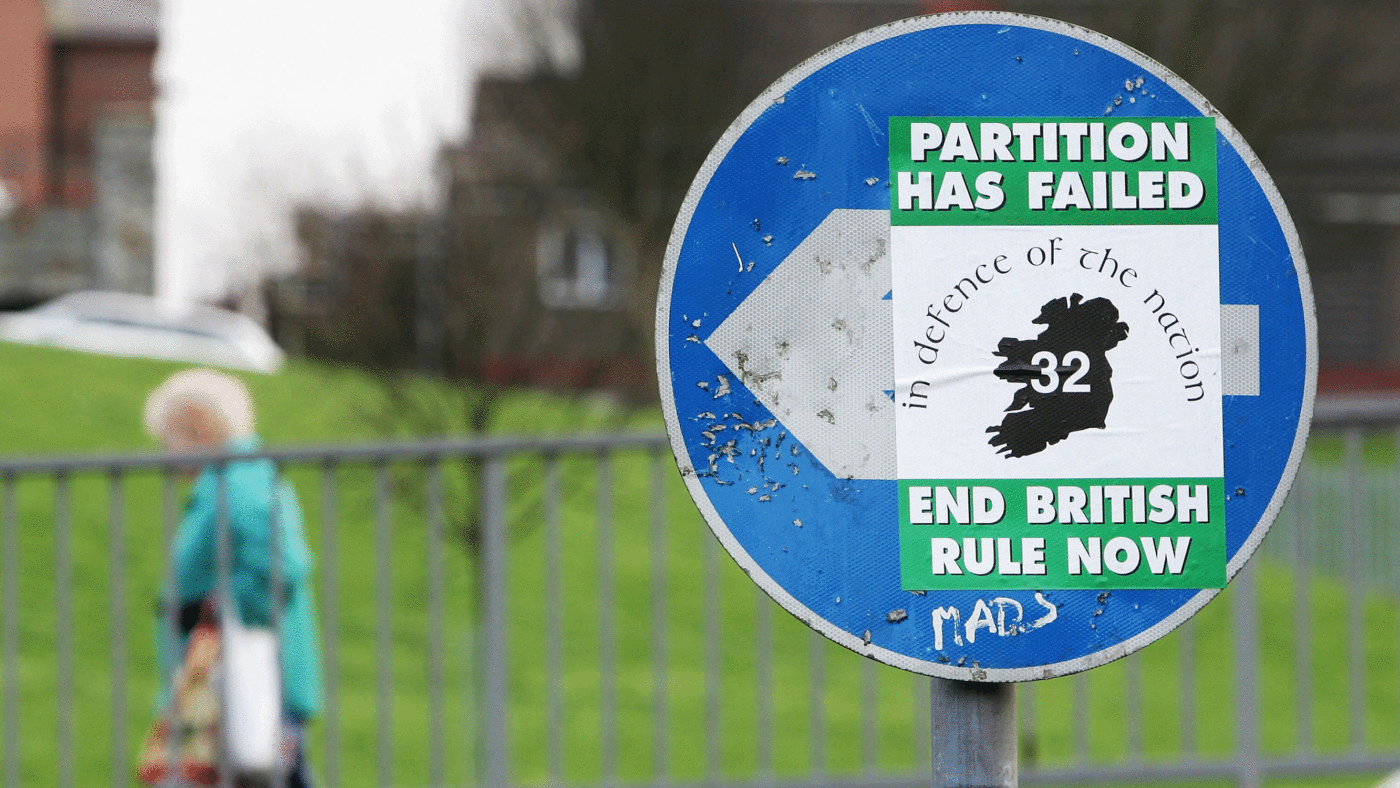From media coverage of Northern Ireland, you might get the impression that the province’s people are engaged daily in a ‘conversation’ about its role in a future all-Ireland state. A small but dedicated group of nationalist campaigners has used the aftermath of Brexit to claim that there is overwhelming demand for a ‘border poll’ on Ulster’s constitutional position.
Too often, journalists and commentators ignore the fact that these assertions are not backed up by reliable data. Publishers have released books about the so-called ‘inevitability’ of an Irish nationalist victory, while The Economist was among the outlets that based a cover story on that premise.
This week, the latest poll by the University of Liverpool’s Institute of Irish Studies confirmed that less than a third of respondents would vote for a ‘united Ireland’, if they were offered the chance tomorrow. This rises to 33%, when the potential change in status is postponed for 10-15 years.
As Ian Acheson described recently on CapX, pro-UK sentiment in Ulster has been remarkably consistent, even in the face of a relentless assault by ‘a partisan coalition of academics and republican activists’.
The results from the University of Liverpool survey, commissioned by the Irish News, are strikingly similar to others down through the years, despite the recent hype about the topic. Only a quarter of respondents said they would vote for a separate all-Ireland state if they were asked to pay higher taxes or healthcare costs under a new administration. That finding is replicated in polls south of the border, where voters say that they are not prepared to foot extra costs for Northern Ireland’s absorption by the Republic.
With this in mind, nationalists have achieved a remarkable propaganda success by implanting the idea that the demand for an all-Ireland state is growing. To encourage this notion, they’ve organised a seemingly endless series of debates, seminars and newspaper columns about a so-called ‘new Ireland’ or ‘shared Ireland’.
These euphemisms attempt to lend their cause – the destruction of Northern Ireland and its separation from the rest of the United Kingdom – an air of freshness, despite the fact that ‘the struggle’ is now over a century old. If you look carefully at some of the groups coordinating this ‘debate’, you will find that some of the worst elements of the ‘old Ireland’ are prominently represented.
Ireland’s Future is one of the noisiest advocates of a ‘conversation’ about ‘unity’, for example. It stages events that claim to promote ‘discussion…about a new constitutional vision for our island’ and it says it ‘welcomes people from all political persuasions’. The group likes to include sympathetic panellists who purport to come from a unionist background, but most of its board are involved with Sinn Fein or close to its campaigns.
The republican movement previously tried to bomb and shoot Northern Ireland out of the UK; now it is trying to achieve the same aim by chairing drearily repetitive symposia that provide a predetermined answer to Ulster’s constitutional ‘question’. This is progress, of a sort. But while these campaigners attract an unjustified amount of attention from radio phone-in shows and newspapers, voters stubbornly insist on telling pollsters they would prefer to stay in the Union.
This difference between perception and reality matters, because the Northern Ireland Act, which enshrined the Belfast Agreement in legislation, empowered the secretary of state to hold a border poll, ‘if at any time it appears likely to him that a majority of those voting would express a wish that Northern Ireland should cease to be part of the UK and form part of a united Ireland’. No criteria are specified to guide the minister, so political pressure, as well as objective evidence like opinion polling, could play a role in affecting that decision.
The last few years have shown that Westminster is susceptible to campaigns coordinated between Dublin and separatists in Ulster. The Northern Ireland Protocol was conceded in the face of thinly veiled threats that violence would follow unless nationalists’ demands were met.
The Irish Sea frontier was designed to make sure that their sensitivities about the Irish land border were prioritised over unionists’ right to play a full role in the UK. And the Protocol has been defended fiercely by the Irish government and some Northern Irish parties, despite the well-documented harm it has visited on consumers and business supply chains.
Northern Ireland is currently in the middle of a fractious election campaign that could end with Sinn Fein as the largest party. The republicans’ northern leader, Michelle O’Neill, launched her pitch to voters at the Europa Hotel in Belfast, which was once known as the most bombed hotel in Europe, thanks to her colleagues in the IRA. If Sinn Fein beats the DUP into second place on May the 5th, it is likely to intensify demands for a border poll.
A sustained campaign for a referendum on Northern Ireland’s future would be tremendously divisive and distracting, at a time when the province is struggling with a cost of living crisis, exacerbated by the Protocol. And it would plainly not be based on any real evidence of demand from the public. Nevertheless, the latest polling is a reminder that the government must remain alive to republican propaganda and show more backbone when it comes to defending the Union.
Click here to subscribe to our daily briefing – the best pieces from CapX and across the web.
CapX depends on the generosity of its readers. If you value what we do, please consider making a donation.


